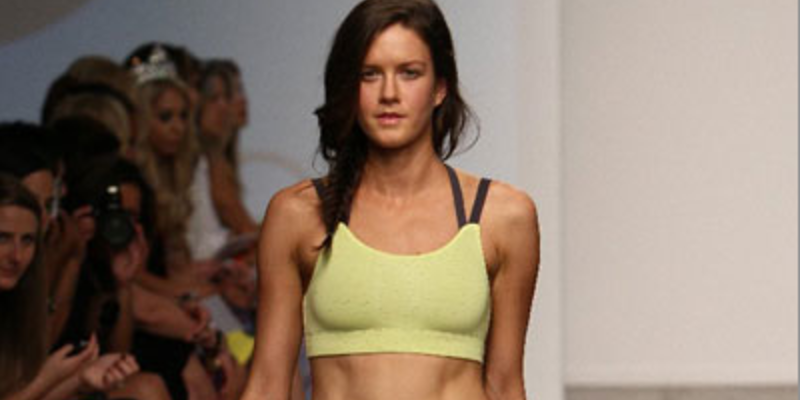
![]()
Tori Williams is a senior at College of Charleston majoring in Communication and minoring in International Studies and Dance. She is currently the editor-in-chief of Her Campus College of Charleston, an online magazine for college women, as well as an editorial intern with Charleston magazine. Tori spends her days dancing with Dance FX's adult performance company and through CofC. This West Virginia native hopes to find a career that allows her to combine her two passions of writing and dancing in the Lowcountry.
This weekend I did what all Charlestonians do on Friday night. I traipsed down King Street in my high heels, hit up a couple bars, and ended up at a place that serves late night breakfast. As I was sipping on my cocktail, about to dig in to an egg sandwich, I glanced around the crowded bar and my eyes landed on one of the skinniest women I’d ever seen. She had on tight, skinny jeans and a backless top that highlighted her protruding spine. Her arms were the size of toothpicks, her long, shiny hair was perfectly fixed, and her jaw line was sharp.
I immediately felt guilty about the egg sandwich in front of me, and peeked at my thighs that are so muscular from years of volleyball and dance. I bet that girl would never eat a greasy meal at 1 a.m., I thought. And then I mentally slapped myself.
Both women and men today are constantly comparing themselves to others, and strive to reach unrealistic levels of beauty. Although this insecurity tends to arise from media surrounding us, such as stick thin models of the fashion industry and glamorized celebrities on movies and TV, it is further fueled by our need for perfection, and finds its way to into our everyday lives. Not only do we compare ourselves to celebrities and models, but also to our peers and friends. We constantly seek new ways to improve ourselves. Nothing is ever good enough.
According to Health Research Funding, 80 percent of women say that the images of females on television, movies, fashion magazines, and advertising make them feel insecure.
According to a poll done by online retailer Swimwear 365, half of the 2,000 women polled said they get pleasure from comparing themselves to ladies they work with, befriend, or pass on the street.
According to the National Eating Disorder Association, male body image concerns have dramatically increased over the past three decades from 15 percent to 43 percent of men being dissatisfied with their bodies.
While at times it’s difficult to ignore the portrayal of beauty constantly thrown our way, it’s so important to remember that those warped interpretations do not demonstrate a logical representation. Body types among individuals vary. Diet, exercise, and metabolism play a key role when it comes to your physique. Genetic factors can alter or enhance certain aspects of your appearance. Everybody is different, in his or her own way.
While media seems to be the root of the body image issue, it is also proving to be the solution. Songs today such as “All About that Bass” by Meghan Trainor contain uplifting lyrics including “every inch of you is perfect from the bottom to the top” and “I won’t be no stick figure, silicone Barbie doll.” Another song that has received significant praise is “Try” by Colbie Caillat, which has an extremely powerful message that women do not need to try so hard to appeal to others, but rather be comfortable in their own skin. Caillat’s music video for the song contains several women (including the singer herself) of all ages, shapes, and sizes who begin dolled up in makeup with their hair done, and then slowly remove those surface layers to reveal who they are and what they truly look like.
There is also an account on social media app Instagram called “healthy is the new skinny” which promotes a healthy lifestyle and gives advice on how to ignore society’s standards of beauty.
Even clothing brands are stepping up their game. Aerie launched the “Real” spring campaign in 2014, which uses completely un-airbrushed models in their ads with the slogan “The girl in this photo has not been retouched. The real you is sexy."

Image from here.
And just this month athletic women modeled for the Oiselle fashion show during New York Fashion Week, being casted based on their portfolios of race times and medals rather than the usual look books and go-sees.

Image from here.
Slowly but surely, we are starting to see a change. And while it may take some time for women and men to gain more confidence in their own skin, these steps taken by media industries are steps in the right direction. So next time you see what appears to be a Victoria’s Secret model walking down the street or out at a bar, don’t compare yourself. Those features are only on the surface, whereas confidence radiates throughout your entire body, and gives you the most beautiful glow of all.
Which is exactly why I took a bite out of my delicious, greasy sandwich, and chose to admire rather than criticize my muscular thighs.